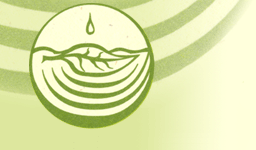A recent study on antioxidants is a classic "hit job" on alternative medicine.
This study compared aspirin to a combination of antioxidants for their ability to prevent progression of arterial disease and diabetes. The study found that there was no difference in effectiveness between the two therapies. And without missing a beat, newspapers around the country proclaimed this new finding.
The dose of antioxidants used in this study is ridiculously low. For instance, this study used 100mg of vitamin C daily in their antioxidant supplement. While this is higher than the US RDA, it is somewhere between 1/5 and 1/20 the dose that is widely recognized to confer therapeutic benefits.
Likewise, 200mg of vitamin E was used, which is approximately 200IU (the units typically used to indicate vitamin E dosage). Virtually every study done on vitamin E finds benefits when the dose is between 800IU and 1200IU, or 4-6 times the dose used in this study.
The dose of vitamin B6, zinc, selenium and lecithin used in the study were all very very low.
The study states that "experts in antioxidants" were consulted to determine doses to use of each one. Apparently these experts are unfamiliar with both the research on antioxidants and with the clinical use of them. As a result, we have a study that tells us absolutely nothing about the effectiveness of antioxidants to prevent progression of arterial disease and diabetes.
Is it any wonder why alternative health care practitioners are skeptical of conventional research into the supplements they use?
Thursday, November 13, 2008
Monday, November 10, 2008
Growing Smarter Kids
A Canadian study found that eating more fruits and vegetables was associated with better academic performance among high schoolers.
A second study looked at brain performance in children 6 to 14 years old before and after one year of taking a multivitamin/mineral supplement. The results are hardly surprising: there was a significant improvement on two different attention tasks than kids not taking the supplements.
Ironically, what are the most commonly prescribed medications for school aged children? Of course they are medications for attention deficit. How much more sensible would it be to supplement these kids with multivitamins than to "supplement" them with pharmaceuticals?
Labels:
ADHD,
attention,
chidren,
multivitamins
Friday, November 7, 2008
Respiratory Infections in Children
Children's cough/cold medicine has been shown to be more dangerous than helpful. But a recent study suggests that there are other kinds of therapies that will benefit kids with colds.
A recent study in the Journal of Pediatrics found that school-aged children supplemented with fish oil experienced upper respiratory infections with less frequency. In addition, those who did get a cold had it for a shorter length of time when compared to kids not receiving the fish oil supplementation.
The general thought within the medical community is that, if there is no conventional therapy for a given problem, then there is no useful therapy. This is just one more example of a natural therapy that not only reduces illnesses in children, but will enhance their health overall.
Do we think that pediatricians across the country are going to start recommending fish oil supplements to children to prevent colds?
A recent study in the Journal of Pediatrics found that school-aged children supplemented with fish oil experienced upper respiratory infections with less frequency. In addition, those who did get a cold had it for a shorter length of time when compared to kids not receiving the fish oil supplementation.
The general thought within the medical community is that, if there is no conventional therapy for a given problem, then there is no useful therapy. This is just one more example of a natural therapy that not only reduces illnesses in children, but will enhance their health overall.
Do we think that pediatricians across the country are going to start recommending fish oil supplements to children to prevent colds?
Subscribe to:
Posts (Atom)

